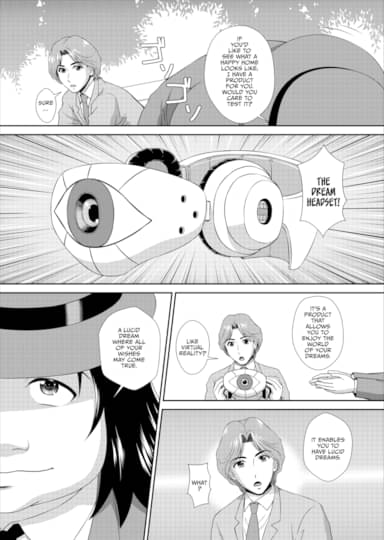Housewife Princess/Extra Chapter
Artist
Parody
Magazine
Publisher
Pages
20 pages
Favorites
145 favorites
Direction
Right to Left
Girls who take it up the ass win first prize! ❤
A tale from Kairakuten's distant past.
Sample Pages
Top Comments
16
hatchguy
8 years ago
What did I just read?
12
GODsHandOnEarth
(Not-so-)Grim Reaper
8 years ago
Plot twists on every page!
5
ChrisBRosado123
8 years ago
A Karma Tatsurou manga. Nothing at all unexpected.
9
8 years ago
For those of you wondering where the bizarre plot elements of this story come from, they're mostly taken from a Japanese fairy tale called "Taketori Monogatari," or "The Tale of the Bamboo-cutter."
There's also a bit of a joke on page 7, which hinges on the Japanese term "hitozuma," which is being translated as "housewife" here. The "zuma" in "hitozuma" comes from "tsuma," which means wife or bride. "Hito," meanwhile, just means "a person." So "hitozuma" most precisely means "someone [else's] wife", which is where the word gets its sexiness from. In the first panel of page 7, the old lady is pointing out that the idea of a woman being born as "the legedary somebody-else's-wife" makes no sense without a somebody-else for her to be married to.
The joke isn't really lost in the translation, but the absurdity of the "legendary housewife" is more central in the Japanese version. That said, I would have translated this the same way FAKKU did, though.
In conclusion: MORE KARMA TATSURO, PLEASE.
There's also a bit of a joke on page 7, which hinges on the Japanese term "hitozuma," which is being translated as "housewife" here. The "zuma" in "hitozuma" comes from "tsuma," which means wife or bride. "Hito," meanwhile, just means "a person." So "hitozuma" most precisely means "someone [else's] wife", which is where the word gets its sexiness from. In the first panel of page 7, the old lady is pointing out that the idea of a woman being born as "the legedary somebody-else's-wife" makes no sense without a somebody-else for her to be married to.
The joke isn't really lost in the translation, but the absurdity of the "legendary housewife" is more central in the Japanese version. That said, I would have translated this the same way FAKKU did, though.
In conclusion: MORE KARMA TATSURO, PLEASE.
2
blackswordsman
Eternal Struggler
8 years ago
I never thought I'd learn japanese cultural references from a hentai manga. I was mistaken.
2
8 years ago
I feel like my favourite anime just got raped. In fact, it literally was.
But, like all hentai rape, it became consensual soon enough.
But, like all hentai rape, it became consensual soon enough.
7
8 years ago
Bear in mind that the Bamboo-Cutter's Tale dates back to at least the 10th century AD, and given the prevalence of erotic parody during the Edo period (Ihara Saikaku's name comes to mind), there were undoubtedly many pornographic parodies of the tale before the medium called "anime" was ever invented.
So your favorite anime's virtue is either intact or never existed in the first place—take your pick.
So your favorite anime's virtue is either intact or never existed in the first place—take your pick.
Recent Comments
2
sl01
Yuri and Traps FTW
7 years ago
Is it me, or does the old man sort of look like Charlie brown?
2
animefreak_usa
Child of Samael
8 years ago
Is this from Hitozuma hime series? Well well... print all three tanks.
1
Papa Nito
Enemy Stand
8 years ago
Few things piss me off more than my parents shooting me with a random lazer gun.
1
Xelgadis
Ex Hentai Protagonist
8 years ago
I feel like this was censored. The genitals were all lightsaber like.
2
YQII
FAKKU Translator
8 years ago
They originally had a complete white-out on all the genitals. This is primarily a gag manga, and those tend to look like this.
1
AssasinZAssasin
Not Hentai Protagonist
8 years ago
...Housewife apron. That was the very first thing I noticed, but...Stayed for the story.
And bloody hell, this story is amazing. I certainly don't regret reading it, though I felt somewhat bad for the grandpa. Both his wife(the grandma) and his new housewife both think his son is better than him...
And bloody hell, this story is amazing. I certainly don't regret reading it, though I felt somewhat bad for the grandpa. Both his wife(the grandma) and his new housewife both think his son is better than him...
2
GODsHandOnEarth
(Not-so-)Grim Reaper
8 years ago
I want the original chapters!!!
(And of course the other thing I always ask for - but this goes without saying...)
(And of course the other thing I always ask for - but this goes without saying...)




















